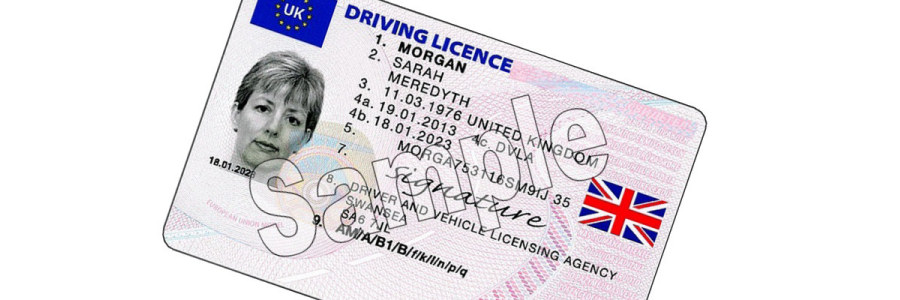the brexit files
information for uk expatriates living in europe
Friday 13th December 2019
Whilst the wholly unexpected landslide victory for the Conservative and Unionist Party was predicated on Britain leaving the EU, the 'B' word is not a simple switch to be thrown from Downing Street, and the process will continue to dominate both the Parliamentary diary and the UK media, for at least another year, or more.
Withdrawal
The previously defeated Withdrawal Agreement bill, which lays the basis for Britain's departure, will once again be put before the House and will pass, probably before New Year if the Lords can be pursuaded to sit on the 27th.
This means that the UK will officially cease to be a member of the European Union as of midnight on January 31st 2020. . . but will then enter a year long 'transition' period, during which very little noticeable change will occur.
D I V O R C E U
Now that the Decree Nisi is a foregone conclusion, the hard work of negotiating the final settlement begins.
Although immediately free to negotiate trade deals across the world, the new Government's priority is to secure continued access to European markets for UK goods and services. They have made it clear, however, that the UK will leave the customs union and single market, and end the jurisdiction of the European Court of Justice, by December 2020. . . whether or not agreement has been reached on the terms of the Decree Absolute.
The uncomfortable truth is that a 'no deal' Brexit, just like an 'amicable' divorce, is a fallacy borne of wishful thinking. There are always consequences, and a set of rules will be applied to any form of separation.
Furthermore, Britain's impending departure is already jeopardising the stability of the European Union. Allowing the UK to leave without the most severe political and fiscal consequences would exacerbate this instability and encourage other member States to follow suit; with Greece, Italy and Sweden widely considered to be next in the queue (according to Ladbrokes!)
The next year +
The first hurdle to clear is that every one of the (remaining) 27 member states, and the European Parliament, must agree a negotiating framework for the trade agreement before the end of June. It is unlikely, given this fact, that formal talks will begin until March or April, which makes this summer deadline all but impossible.
If no trade deal has been agreed by this date, the UK then faces the prospect of leaving without a deal at the end of December 2020, but can request that this 'transition' period be extended by as much as two years. Whether an extension is requested or granted, however, is by no means certain. . . and the very fact that the UK wishes to diverge from EU rules in order to set up deals with other countries will make negotiations even more difficult.
Even if, by some miracle, an outline agreement on the shape of a trading relationship is reached by June 30th, the subsequent ratification process is likely to take several more months.
To put this issue into perspective, a trade deal of such size and complexity has never been agreed between the EU and any non-member country in anything like this hugely optimistic timeframe. And it's far from just trade that needs to be sorted out. Both sides must also agree on how they are going to co-operate on a wide range of other matters including security and law enforcement. . . for example; the UK will also leave the European Arrest Warrant scheme and a replacement will need to be formulated, negotiated and enacted.
The danger is, of course, that the Prime Minister will follow through with his oft-stated intention to cut all ties with the EU at the end of December 2020, whether or not a trade deal is in place. In that scenario, the UK would follow World Trade Organisation rules to trade with the EU and be subject to all of the tariffs and duties that this entails.
the disunited kingdom
Given the landslide success achieved by the SNP, momentum will increase for a further referendum on Scottish independence which will, if successful, lead to Scotland seeking to retain (or regain) EU membership.
The 'Irish question' will pale into insignificance alongside the manifold issues arising from a land border with Scotland, with no convenient Irish Sea to act as a natural partition.

post brexit for expats
The implications arising from Britain's departure, either with or without a 'deal', are arguably that much more important for UK expatriates living in Europe.
No perceptible changes should occur prior to December 2020, but these are some of the issues you may need to consider after our final exit.
customs declarations
At the moment, a CN22 Customs Declaration ( including a description of the contents, their purpose and value ) is required whenever we send anything larger than the Royal Mail's 'Letter' format to a country outside of the EU. This, of course, is primarily so that the destination country can levy whatever local Duty is payable on the goods.
Following the conclusion of Brexit we must assume that a similar declaration will be required when despatching to an address in an EU Member State. Although we currently make no charge to complete a Customs Declaration on your behalf, we may have to review this policy once the scale of the extra work required becomes apparent.
transit time for forwarded mail
It seems inevitable that there will be a postal delay for mail forwarded to EU States in order to accommodate Customs clearance. Our best guess is that transit time for Royal Mail International Standard post will increase by at least 24 hours, and possibly more, bringing it into line with the current 5 - 8 days for mail sent to countries outside of Europe. Private couriers are likely to experience similar delays.
postal and shipping costs
Again, with the loss of reciprocal agreements between Royal Mail and various EU domestic postal carriers, their charges will almost certainly increase. However, neither the Royal Mail nor any of the International Courier firms we have approached are willing, at this stage, to speculate on the extent of potential price rises.
We would not be surprised to see costs increase by around 15%, bringing them into line with similarly distant non-EU destinations.
northern ireland
Under the current version of the Withdrawal Agreement, negotiated with Brussels prior to the election, in order to obviate the need for a hard border with the Republic and protect the 'Good Friday Agreement', Northern Ireland would remain in the European Customs Union and Single Market. . . whilst also be part the UK Customs Territory!
As a result, mail ( including parcels ) forwarded to destinations within Europe from our Northern Ireland Mail Centre in County Down would be exempt from Customs checks, tariffs and duty. However, packets and parcels (including goods bought on-line from Amazon, EBAY etc.) sent to the Mail Centre from elsewhere in the UK would still be treated as domestic mail. It is this inherent contradiction that caused the DUP such consternation, but offers some intriguing possibilities.
As an aside, we will soon be opening a Mail Centre in Dublin, in order to take advantage of the potential for businesses seeking to operate on both sides of the Irish border, in whatever form that border may eventually take!

driving in europe
post brexit licensing & insurance
What impact would a 'no-deal' Brexit have on driving abroad? If the UK leaves without a deal, it is likely that drivers with a vehicle still registered in the UK will need to obtain and carry a 'Green Card' with them when driving in the European Economic Area, including Andorra, Serbia, Switzerland, and the Republic of Ireland. This card is an international certificate of insurance that guarantees a motorist has the necessary third-party insurance cover and is suitably insured to drive in EEA countries.
Once the UK ceases to be part of the European Economic Area, authorities in EEA countries will be allowed to stop UK registered vehicles at borders to check that they hold a Green Card. In some of these countries it is a criminal offence not to carry a Green Card and motorists could be subject to a fine, seizure of their vehicle, or face prosecution. It's also important to remember that a separate Green Card must be carried for a trailer or caravan as each card has a unique, identifiable, number.
If you have a local licence, issued by your country of residence, and your vehicle is registered in an EEA country, then it is likely that a reciprocal arrangement would apply should you decide to drive in the UK. We are awaiting a more definitive answer from the DVLA.
Information partly drawn from the RAC advice to Members, 14 March 2019.
overseas voters
changes in voting regulations
As a British citizen living abroad, in the European Union or further afield, you currently only maintain your right to vote in Parliamentary Elections (or any future referendums!) for fifteen years. This is almost certainly about to change.
The private 'Overseas Electors Bill 2017-19', sponsored by Glynn Davies MP, has inevitably been held up by Parliament's preoccupation with Brexit and the election, but is expected to enter statute later in 2020. It effectively removes this 15 year limitation and provides UK expatriates with a 'Vote for Life'. It will also afford the children of expats, even if they were born outside of the UK, the right to vote in UK elections once they have reached the age of majority.
The Government's own estimates suggest that this bill could add up to 3.5 million new voters, the electoral office would be swamped by so many registrations and so implementation is likely to be deferred until the next (scheduled) general election in 2024.

